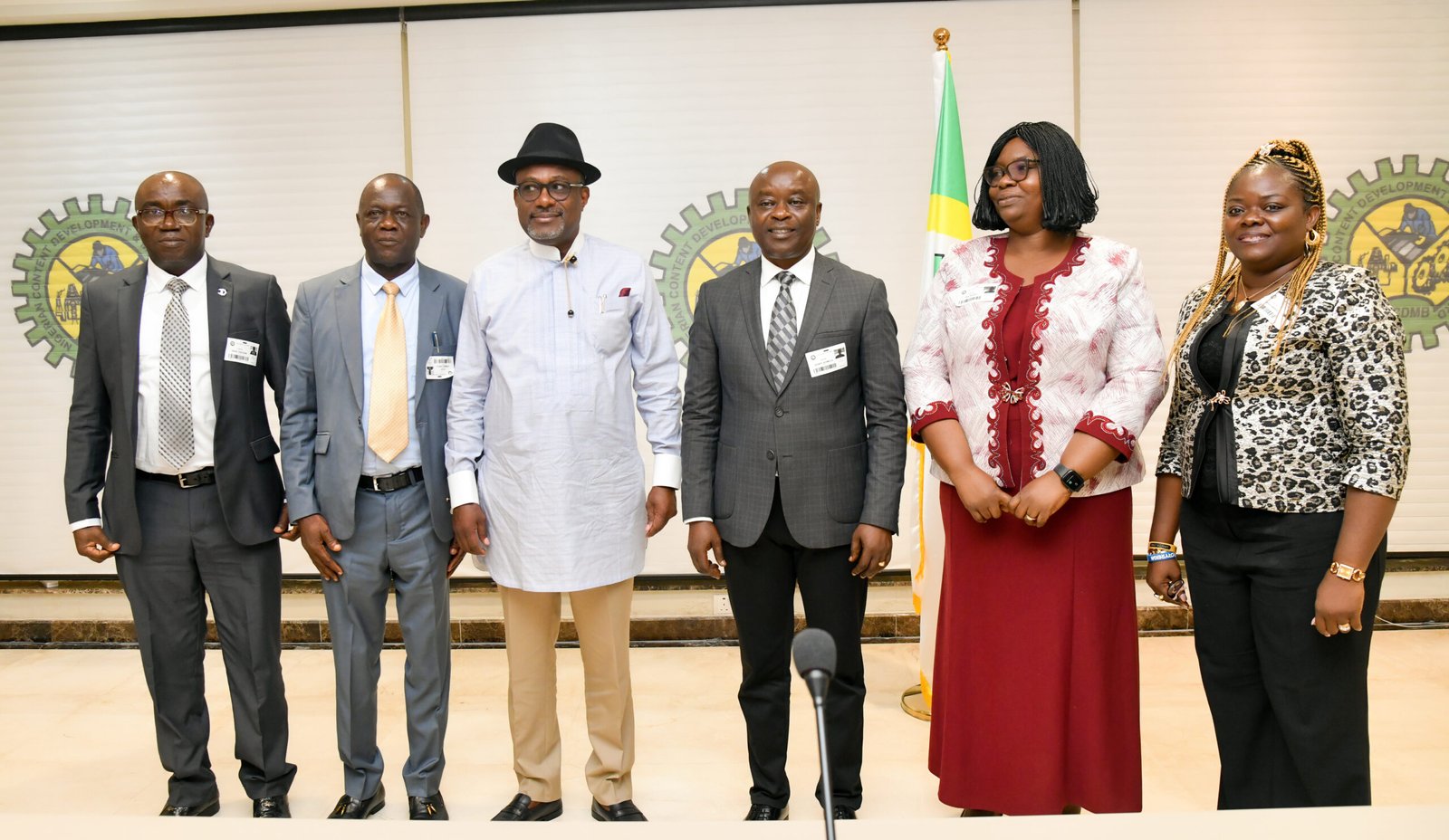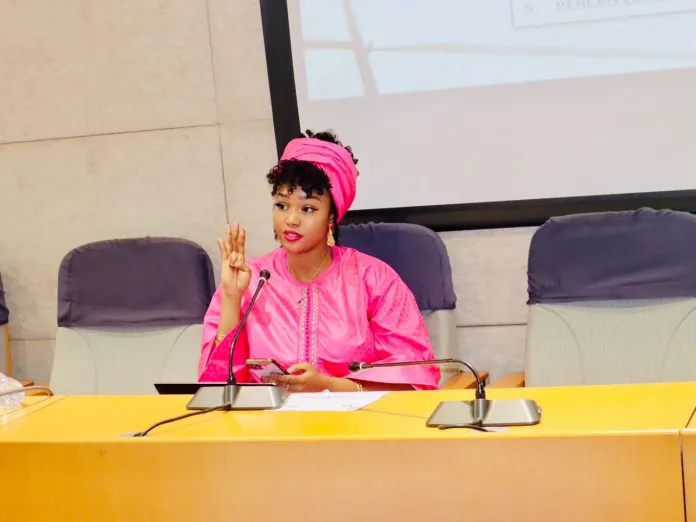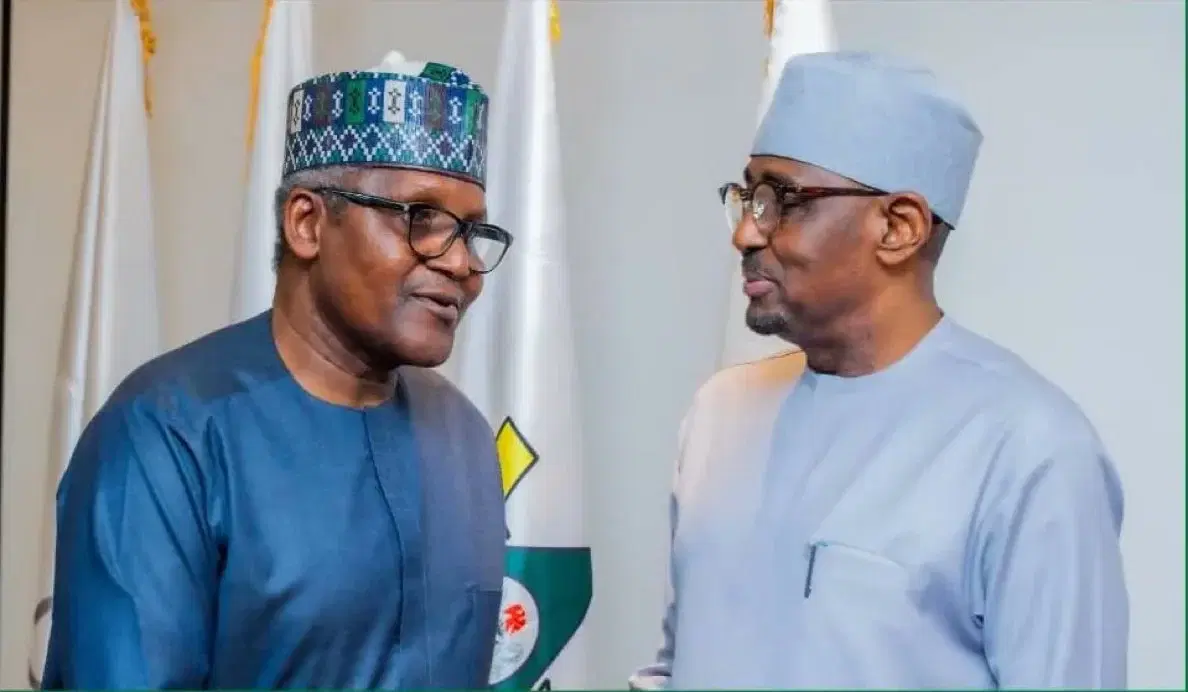• Wabote named Fellow, Petroleum Training Institute
The Nigerian Content Development and Monitoring Board (NCDMB) and Petroleum Training Institute (PTI), Effurun, Delta State, are set to formalise processes for closer collaboration to actualise their shared mandate for human capacity development and advancement of Nigeria’s oil and gas industry.
At an exploratory session at the Nigerian Content Tower, Yenagoa, corporate headquarters of the NCDMB, on Tuesday, the Managements of the two organisations in the Federal Ministry of Petroleum Resources affirmed their institutional resolve to close skill gaps in the industry and agreed on a wide range of initiatives to be undertaken in the immediate future.

The Executive Secretary, NCDMB, Engr. Simbi Kesiye Wabote, recalled his early days as an engineer in Shell Petroleum Development Company when PTI was viewed by the company and other oil industry operators as the ultimate centre for training of technicians in Nigeria, adding that he is “one of those who have continuously advocated for PTI” to be reckoned with for manpower development, better resourced than similar skills development centres in some countries abroad.
The NCDMB boss promised to send candidates to the Institute for training, but pointed out that a lot has changed in the highly technology-driven oil and gas industry, and that it should strive to keep pace with trends. “Things have changed,” he noted, adding, “Technology has moved up and PTI…has to move up with technology.”
He agreed with the Management of the PTI, led by its Principal and Chief Executive, Dr. Henry A. Adimula, that a joint committee proposed at an earlier meeting in 2020 be expeditiously instituted to work out modalities for collaboration, assuring that the Board was prepared to intervene in critical areas through material assistance to the Institute to advance critical objectives of the organisations.
A signature event of the emerging partnership is the forthcoming International Conference on Hydrocarbon Science and Technology (ICHS), an initiative of the PTI Management to which the oil and gas industry regulator and Nigerian Content champion has pledged maximum support and collaboration. That event is scheduled for Abuja within the last quarter of the year, and has received guarantees of participation from other key industry players including the Petroleum Technology Development Fund (PTDF) and the Nigerian National Petroleum Company Limited (NNPCL).
Key areas of assistance NCDMB has pledged to PTI include upgrade of engineering and technical workshops, facilities for virtual learning, staff development programmes through retraining, and industrial placement for staff and students.
For the PTI to achieve its full potential, Engr. Wabote advised the Management to do more to raise general awareness of its existence and statutory mandate as well as facilities and capacity-building achievements thus far. According to him, “A lot of people know you as an Institute but you’ve not been able to showcase yourself and market yourself” as to how the diploma and certificate programmes provided are vital for oil and gas industry operations. Continuing, he said, “Look for platforms to advertise what you do, including opportunities for conferences.”
Earlier, Dr. Adimula had commended the NCDMB Management for support provided in the Institute’s plans to establish a research and development centre and the donation of software that has greatly aided capacity development. He disclosed that the PTI is determined to align itself with the aspirations of the nation in regard to the oil and gas industry and has been working closely with the Oil Producers Trade Section (OPTS), OCTAN and the National Board for Technical Education (NBTE) to establish operational standards for industry-related skills.
He identified the National Skills Qualification Framework (NSQF) as one significant outcome of the Institute’s collaboration with other key industry players.
Established in 1973 by the Federal Government “as a prerequisite for membership of the Organisation of Petroleum Exporting Countries (OPEC) to train indigenous middle-level manpower,” the PTI functions as an agency under the Ministry of Petroleum Resources.
On the sideline of the meeting, Engr. Wabote was awarded with the Fellowship of the Petroleum Training Institute (FPTI) by the principal of the Institute.








